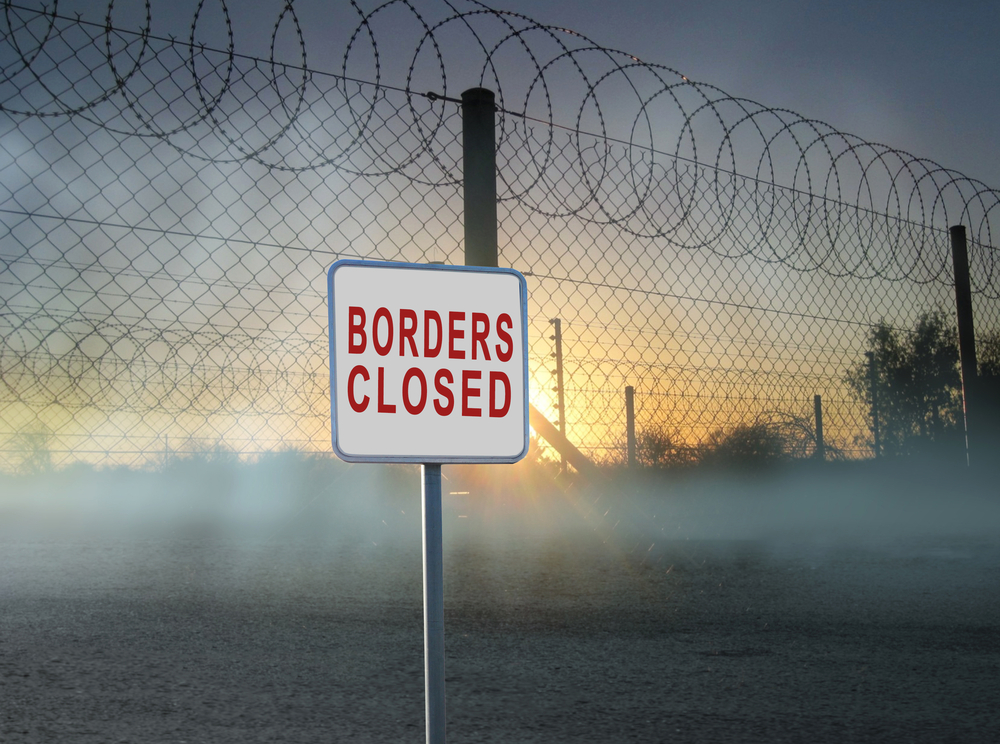
Credit: Shutterstock
Politics aside, speaking solely in the context of scientific research and innovation, President Trump’s recent Executive Order to ban citizens of seven Muslim-majority countries, including green card holders*, is harmful to America’s research, development and innovation pipeline.
Today’s research is inherently global. Scientists collaborate with foreign researchers for a multitude of reasons, whether it’s because their foreign counterpart is a leader in a specific area of interest, or because the foreign researcher is the perfect complement to the intended research. Either way, a foreign collaborator’s contributions to the research cannot be understated.
International travel is also a major component of modern research. Not only are scientists expected to travel abroad for conferences; they also often have to travel to fulfill their job and research requirements.
For example, hundreds of U.S. scientists flocked to Sierra Leone and other West African countries during the Ebola outbreak of 2014/2015. If the current Executive Order was enacted then, any U.S. researcher that traveled to help stop the deadly virus—but was born in Iraq, Iran, Syria, Somalia, Sudan, Libya or Yemen—would have been denied reentry into the U.S., despite their visa category.
This includes thousands of professors and students who worked and studied in the U.S. for years, at some of the most reputable and historic research intuitions.
“Our students come to us from every faith, culture and background and from all 50 states,” MIT president L. Rafael Reif said in a statement emailed to Laboratory Equipment. “We are as American as the flag on the Moon. At the same time, and without the slightest sense of contradiction, MIT is profoundly global. Like the United States, and thanks to the United States, MIT gains tremendous strength by being a magnet for talent from around the world. More than 40% of our faculty, 40% of our graduate students and 10% of our undergraduates are international. Faculty, students, post-docs and staff from 134 other nations join us here because they love our mission, our values and our community.”
As of last night, MIT was still working “with difficulty” to return two undergraduate members of the MIT community to campus after being denied entry to the U.S. on Saturday due to Trump’s Executive Order.
According to The New York Times, a Stanford University graduate student was briefly handcuffed and detained at JFK airport for five hours upon her return from a research trip to her native Sudan for her anthropology Ph.D. Nisrin Omer, a green card holder, has lived in the U.S. since 1993, and graduated from Harvard University.
And it’s not just MIT and Stanford. I reached out to seven research-intensive universities who all emailed statements denouncing the Executive Order and the effect it will have on U.S. research, especially in academia.
“This Order will weaken the promise of educational opportunity, intellectual discovery and global engagement that so distinguishes American universities,” said Amy Gutmann, President of the University of Pennsylvania, in a statement emailed to Laboratory Equipment. Gutmann, the daughter of a Jewish immigrant who fled Nazi Germany, said the school will do everything it can to urge Trump to reverse course.
“Immigration strengthens the fabric of this nation and our University. Immigrants spark innovation, launch new businesses, and enrich our culture and arts. They are a precious national resource and invaluable to Penn,” she said.
As of this writing, 50 Nobel Laureates have signed a petition and open letter opposing the Executive Order. The Laureates are joined by 443 members of the National Academies of Sciences, Engineering, Arts; 82 winners of Fields/Dirac/Clark/Turing/Poincare Medals, Breakthrough Prize, Pulitzer Prize and/or MacArthur Fellowship; 14,800 U.S. academic faculty members; and over 18,000 academic supporters.
“This Executive Order is detrimental to the national interests of the United States,” the petition reads. “The EO significantly damages American leadership in higher education and research. U.S. research institutes host a significant number of researchers from the nations subjected to the upcoming restrictions. From Iran alone, more than 3,000 students have received Ph.D.s from American universities in the past three years. The proposed EO limits collaborations with researchers from these nations by restricting entry of these researchers to the U.S. and can potentially lead to departure of many talented individuals who are current and future researchers and entrepreneurs in the U.S. We strongly believe the immediate and long term consequences of this EO do not serve our national interests.”
I’m not expressing an opinion for or against “extreme vetting,” as its being called, since this is not the forum for such a thing. What I am expressing is the need to take into account the opinions of thousands of leaders on the frontlines of research and education. It is these people, the ones we have chosen to lead our children and our children’s children, that are so vehemently speaking out against the Order and the damage it will do to U.S. research and science. We have given award after award to these people, distinguishing them as among the smartest in the world.
So why are their voices being ignored now?
*Editor’s note: This has since been walked back a bit, but there is still not conclusive information on whether the ban applies. Regardless, there have been reported incidents of the Department of Homeland Security detaining those that do in fact have a green card.




